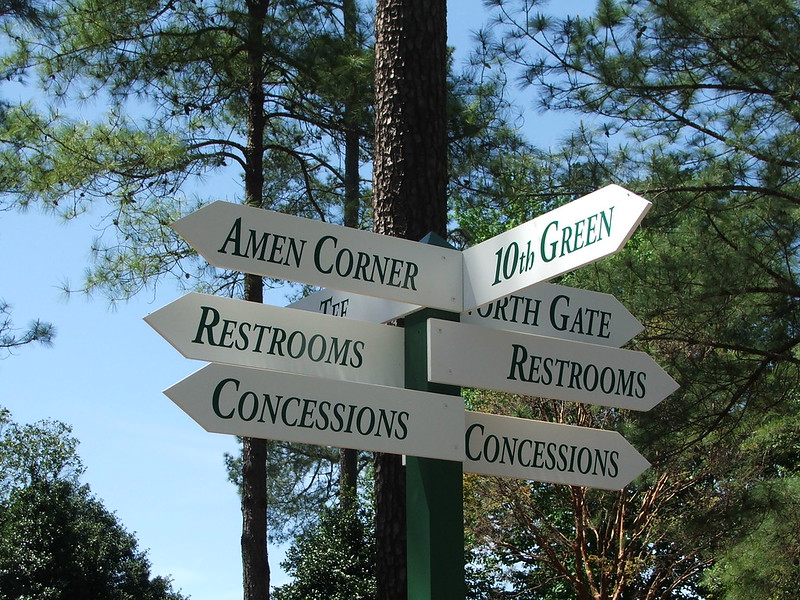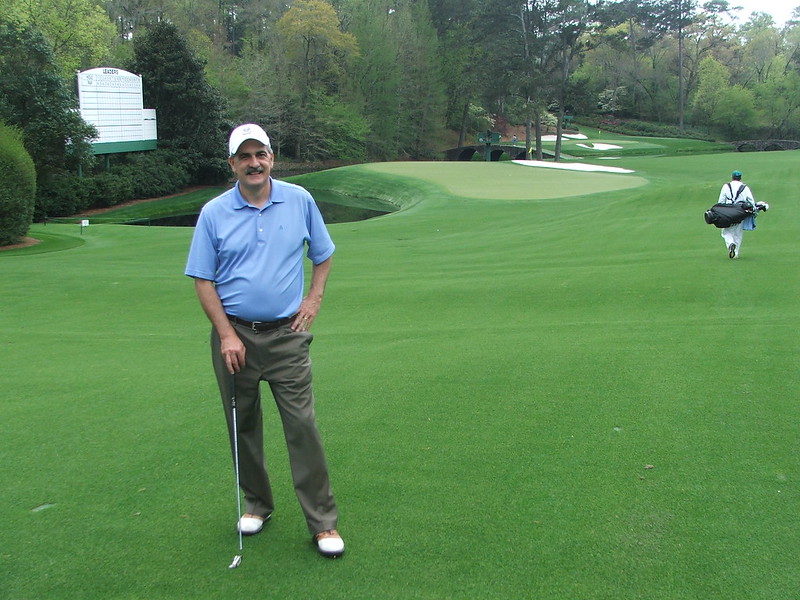I'm fighting hard every day to get back here
Despite the density and its negative reputation, I have always found New Jersey to be a pleasant place to live. Granted, I don’t live in Jersey Shore country, nor near Bada Bing! Think about the benefits: living one hour from New York City and one hour from Philadelphia offers access to the best pastrami sandwiches and cheesesteaks in the world. From a golf standpoint, it’s also nice to be able to have a short drive to both Pine Valley and Merion and to be a couple of hours from the National Golf Links and Maidstone. I have been healthy my whole life and prior to my diagnosis never gave much thought to medical care. I consider myself lucky that I was treated at the University of Pennsylvania, a sophisticated teaching hospital.
They say you want to be treated by someone who specializes in whatever your particular affliction is. So, if you need have knee surgery you want to go to someone who only does knees, all day, every day. It turns out that Penn is one of the best hospitals in the world for treating my type of leukemia, called AML. They have a large team of doctors who do nothing but treat this insidious disease all day. After my initial 48-hour rapid response I started to receive care from an impressive group of doctors and nurses. The results of my bone marrow biopsy revealed that I had a particularly virulent strain of the disease known as an FLT-3 mutation. As the great Yankee Lou Gehrig said, I caught a bad break.
Leukemia isn’t hereditary and there is no good predictor for it. It just comes, literally, in the case of AML, out of the blue. The standard course of treatment for my mutation is three regimes of chemo followed by a bone marrow transplant. AML is the same form of leukemia that tragically took the life of Australian PGA golfer Jarrod Lyle at age 36. That brave soul first had the disease as a teenager and had it come back twice more, going through the standard course of chemo treatment and a transplant each time. That poor courageous man, may he rest in peace. How anyone could go through this ordeal three times defies imagination and would tax even the most optimistic of us.
You know the odds of survival aren’t great when the doctors and nurses hesitate or look away when you ask them what your life expectancy is with this disease.
It depends.
The worse thing in the world you can do is to Google any disease. You only read the horror stories and of high mortality rates. “The wife” has wisdom and implored me to ignore all of them. Medicine has advanced significantly in the last 10-15 years; the statistics can be misleading or not applicable, and there are new treatments and drugs coming onto the market all the time. Ignore it all the wise one said. Even if there is just a small percentage of survival, you truly must believe that you are among that group and you have to fight for your life every day.
My entire month of May was spent tethered to one or more IV machines. I was getting medication 24 hours a day 7 days a week. And for those who have been lucky enough not to endure an overnight stay in the hospital, count your blessings. Make it a life goal never to do so. Sleep is a luxury, as is normal food. Privacy and personal space don’t exist. It is an artificial, antiseptic bubble that is the anthesis of normal life, although I must say that commuting for so many years through the dungeon that is Penn Station in New York did prepare me somewhat for the ordeal. Between the pain, the chorus of machines beeping and the nurses taking your vital signs or administering medicine every four hours, it is an alternate reality to anything I have ever experienced. I am not complaining, to the contrary, I am exceedingly lucky to have had 24-hour medical care by experienced providers and these people are true heroes.
Between my golf quest and my occupation, I have lived in a bubble the last 25 years. I work in the finance world, and Goldman Sachs CEO Lloyd Blanfien infamously said in 2009 that he was doing “God’s work.” The thing is, a lot of people that work in finance believe that what they are doing is noble. “I help people save for retirement or for their kid’s education,” you will hear people say, or we “help raise capital for people to start companies and create jobs.”
It’s a righteous way to describe pushing paper around and using other people’s money. It’s hardly noble or “God’s work.” Nurses caring for cancer patients in the middle of the night is God’s work and far more saintly than working on Wall Street. I’m in a bubble no more. The attendant in the ambulance that took me to the hospital was lamenting how she had to work two jobs and recently had her car repossessed. When I asked the nurses why they worked the night shift the answer was almost universally because it paid more money. The Hopi Indians have a word that describes how we value caregivers: Koyaanisqatsi.
It means life out of balance. How is it as a society that people who put their lives on the line for us, run into burning buildings, and nurture us back to health during our darkest hour aren’t the most prized and well paid? The military have a more succinct description of it: FUBAR. This prima donna now clearly sees that our societal values are backwards.
In any event, I didn’t have much time to think about golf or to dream about my future in May, as the disease overwhelmed me. I was equally overwhelmed by the avalanche of love, prayers, positive thoughts and encouragement from friends and family. Thank you.





